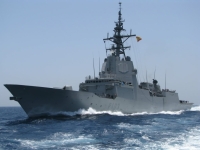Politics
The Ukrainian crisis fractures the Spanish Government
Differences between government partners
USPA NEWS -
Eight Spanish political parties, including two that participate in the Spanish Government and one that supports government policies, have signed a document in which they express their concern about the increase in tension in Ukraine and the little progress in the negotiations between the United States and Russia, and they are totally opposed to sending Spanish troops to the area.
The eight parties, none of them a majority in Parliament, affirm that "this conflict can only be resolved through dialogue, detente and the conviction that peace is the only way," and they ask "to avoid a new war in Europe." And they add that "the European Union must avoid being dragged along and formulate concrete de-escalation proposals that avoid a conflict that seriously harms Ukraine and all of Europe."
Although they recognize and respect the sovereignty of peoples and reject "military threats from one country to another sovereign state, whoever it may be," they affirm that they must not be allowed to "lock us up in an old Cold War scheme." And they denounce that the tension in the area has been growing for years due, they say, to the unprecedented military support that several Western countries provide to Ukraine, in addition to the accumulation of troops on the border between Russia and Ukraine.
They also request the mediation of the UN and the Organization for Security and Cooperation in Europe (OSCE), within a plan to redouble diplomatic efforts aimed at seeking a consensus solution that satisfies all parties. And they ask that the plans for the integration of Ukraine into NATO must be paralyzed.
And they reject the sending of Spanish troops to the Black Sea and Bulgaria. The Spanish frigate Blas de Lezo left this Friday for the Black Sea, with a stopover at the Rota base, where the US Navy has US ships and troops deployed, with 190 soldiers and a special unit of the Marine Corps. For two days, a Spanish Navy minesweeper has been sailing towards the Black Sea. The Blas de Lezo frigate will arrive in the Black Sea next Tuesday.
The crisis in Ukraine has opened a gap in the governing coalition between the Socialist Party and the far-left coalition Podemos. The coalition ministers reject Spain's involvement in the conflict, while the Socialist Minister for Foreign Affairs, José Manuel Albares, recalled this Friday that Spain's foreign policy is marked by the Prime Minister, Pedro Sánchez. What political analysts are wondering today is whether the Podemos ministers will be capable of protest in the streets against the policies of their own government. And they agree in considering that a public and notorious discrepancy like this harms the continuity of the government coalition.
Liability for this article lies with the author, who also holds the copyright. Editorial content from USPA may be quoted on other websites as long as the quote comprises no more than 5% of the entire text, is marked as such and the source is named (via hyperlink).






